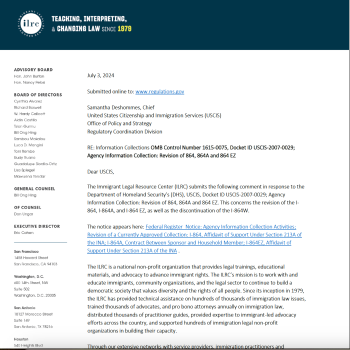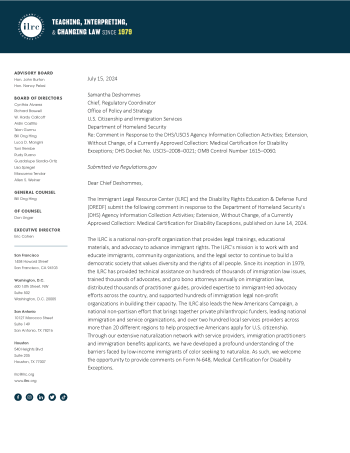
On July 15, 2024, the ILRC along with Disability Rights Education and Defense Fund (DREDF) provided comment on Form N-648, Medical Certification for Disability Exceptions. ILRC and DREDF urged the agency to remove a question that conflates the disability exceptions for English and civics testing with waivers for the oath of allegiance.
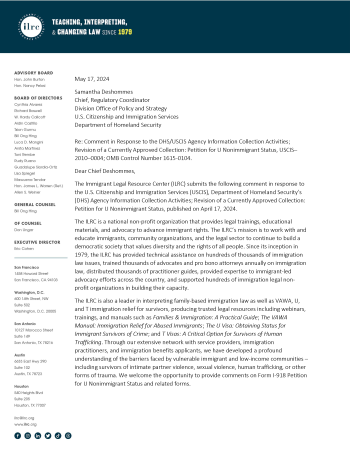
On May 17, 2024, the ILRC provided comment to USCIS on proposed changes to the forms to apply for a U Visa. This is the second time that ILRC provided comment on proposed changes and USCIS accepted some of our previous comments in the newest version. We reiterated some previous requests in response to the agency’s changes and also requested that USCIS extend grace periods for the old forms to mitigate the harm to applicants who would have had to get new law enforcement certifications on new forms, which USCIS granted.
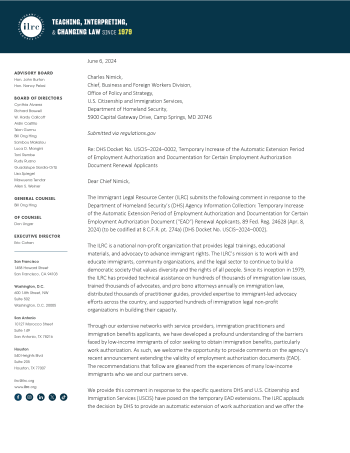
On June 6, 2024, the ILRC submitted a comment in support of DHS’s temporary final rule (TFR) providing automatic extensions of employment authorization documents. The TFR specifically requested comment on whether the measure should be permanent and how long permanent automatic extensions should be. The ILRC wrote in support of a long and permanent auto-extension policy to ensure that applicants are not harmed by administrative delays that lead to lapses in document validity.
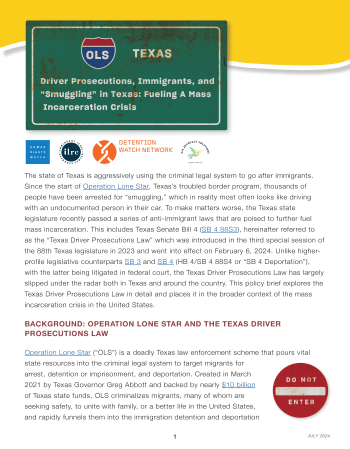
Texas authorities have expansively interpreted a 2024 law that imposes a 10-year mandatory minimum sentence on people convicted under the state's smuggling law to include giving rides to undocumented people, The Immigrant Legal Resource Center (ILRC), Human Rights Watch (HRW), Detention Watch Network (DWN), and AJA Advocacy Solutions said this report highlighting the law’s harm. The brief states that most people prosecuted for smuggling in Texas are young US citizens. Texas law enforcement officers have a troubled track record with identifying alleged smugglers, and now the state has raised the stakes of each arrest significantly.
The U.S. immigration system treats children and young people differently than adults. It is important to understand how your age may impact your options for seeking relief or protection against deportation. This Community Explainer highlights how age impacts eligibility for certain forms of immigration relief, how immigrant youth can help themselves and their family members, and how to learn more.
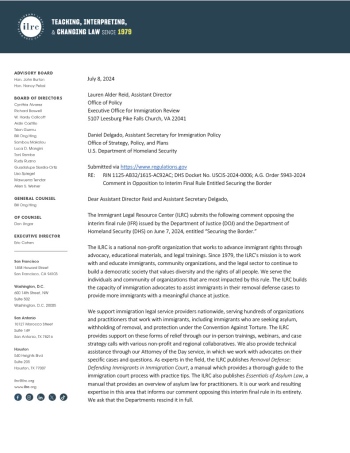
On July 8, the ILRC submitted a comment opposing the Biden administration’s interim final rule (IFR) entitled “Securing the Border.” The IFR unlawfully restricts asylum access by restricting entry and creating a bar to asylum eligibility when there have been a certain number of encounters at the southern U.S. border.
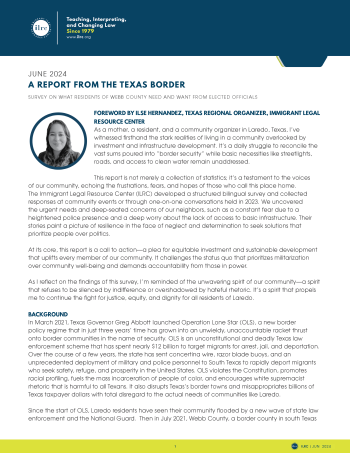
While politicians enact and reenact their reckless border theatrics, the ILRC surveyed border residents about their actual needs and how the influx of law enforcement efforts has affected them. We found that while the state of Texas spends more and more money on police and prisons, local governments are starved of funding and communities lack the most basic services, including clean water, paved roads, and street lights.
On August 30, 2022, the Biden Administration issued a new rule on Deferred Action for Childhood Arrivals (DACA) that incorporates DACA into the Federal Regulations, a process that serves to codify the program into law. Since its announcement, there have been several questions around who can access DACA now and what it means for all those first-time applicants who are waiting to obtain DACA. This Community Explainer details how the rule impacts current DACA recipients, how ongoing court battles affect how DACA is implemented, and more.
